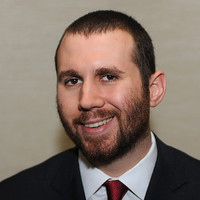Schoolwork may become homework if the coronavirus closes classrooms, but school rules are less likely to hitch a ride home with socially distanced teenagers this fall.
A rural Pennsylvania high school violated a student's free speech rights when it suspended her from the junior varsity cheerleading squad for posting a photo with a vulgar caption on Snapchat, the 3rd U.S. Circuit Court of Appeals ruled June 30.
The three-judge panel in B.L. v. Mahanoy Area School District sharply limited public schools' ability to impose discipline for off-campus speech. That's a bona fide bombshell in the education world, where snooping on students' social media pages is a popular pastime.
The plaintiff, identified in court filings by her initials because of her age, was kept on the JV cheer roster as a sophomore after an unsuccessful varsity team tryout. She and a friend posed for a smartphone picture with their middle fingers raised. B.L. wrote a caption dismissing school, softball and cheerleading with the F-word and shared the image to her Snapchat story.
A teammate saved the photo and showed it to cheer coaches, who removed B.L. from the junior varsity team for a year. She was punished under a personal conduct rule for Manahoy Area High School student-athletes. Attorneys for the school district argued that playing sports is a conditional privilege and that by agreeing to the team rules, B.L. waived her First Amendment rights.
Affirming a federal district ruling, the appellate panel found language in the school policy "too obscure, and too dependent on the whims of school officials, to give rise to a knowing and voluntary waiver of B.L.'s rights to speak as she did."
Administrators cited the "substantial disruption" provision in Tinker v. Des Moines — a landmark Supreme Court case upholding students' right to engage in political speech — as grounds to impose punishment. While Tinker balances expressive rights with schools' interest in maintaining order, its applicability to off-campus extracurricular speech is murky at best.
Appeals courts have split on whether and how the Tinker precedent can limit student speech outside the school environment. Writing for the 3rd Circuit panel, Judge Cheryl Ann Krause detailed the dog's breakfast of competing citations that "sweep in too much speech and distort Tinker's narrow exception into a vast font of regulatory authority."
"We hold today that Tinker does not apply to off-campus speech — that is, speech that is outside school-owned, -operated or -supervised channels and that is not reasonably interpreted as bearing the school's imprimatur," Krause wrote.
If the circuits remain in conflict, a student speech case will find its way onto the Supreme Court's docket. A framework built on Krause's careful analysis could begin chipping away at Morse v. Frederick, a staggering 2007 setback to student speech rights. In that 5-4 ruling, justices said an Alaska high school principal could punish a student who attended an Olympic torch relay near the school and unfurled a banner reading, "Bong Hits 4 Jesus."
Morse applies narrowly to schools' interest in discouraging the promotion and use of illegal drugs, but the case should have turned on relevant distinctions between on- and off-campus speech.
Juneau-Douglas High School let students leave class to watch the torch relay. Joseph Frederick, who brought the "Bong Hits" banner, "was late to school that day," Chief Justice John Roberts wrote, and arrived in time to join his friends across the street from school to watch the torchbearers pass.
Because Frederick went from home to a public assembly without attending class or signing himself in, he wasn't under the school's care when Principal Deborah Morse tried to confiscate his banner. The high court was too busy harrumphing over a nonsensical pro-marijuana slogan to notice that extending principals' punishment power off school grounds diminishes the scope of parental authority.
Federal judges who give schools too much leeway to police students' off-campus conduct are invariably pitting principal and teacher against Mom and Dad. If a hypothetical hippie parent were to help Joseph Frederick hoist his banner, wouldn't Morse be just as ready to dole out discipline?
Distance learning to contain the COVID-19 pandemic might give rise to the next student speech controversy. If imperious administrators insist on butting in, they could be on a collision course with the Supreme Court.
Corey Friedman is an opinion journalist who explores solutions to political conflicts from an independent perspective. Follow him on Twitter @coreywrites. To find out more about Corey Friedman and read features by other Creators writers and cartoonists, visit the Creators webpage at www.creators.com.
Photo credit: MrJayW at Pixabay






View Comments